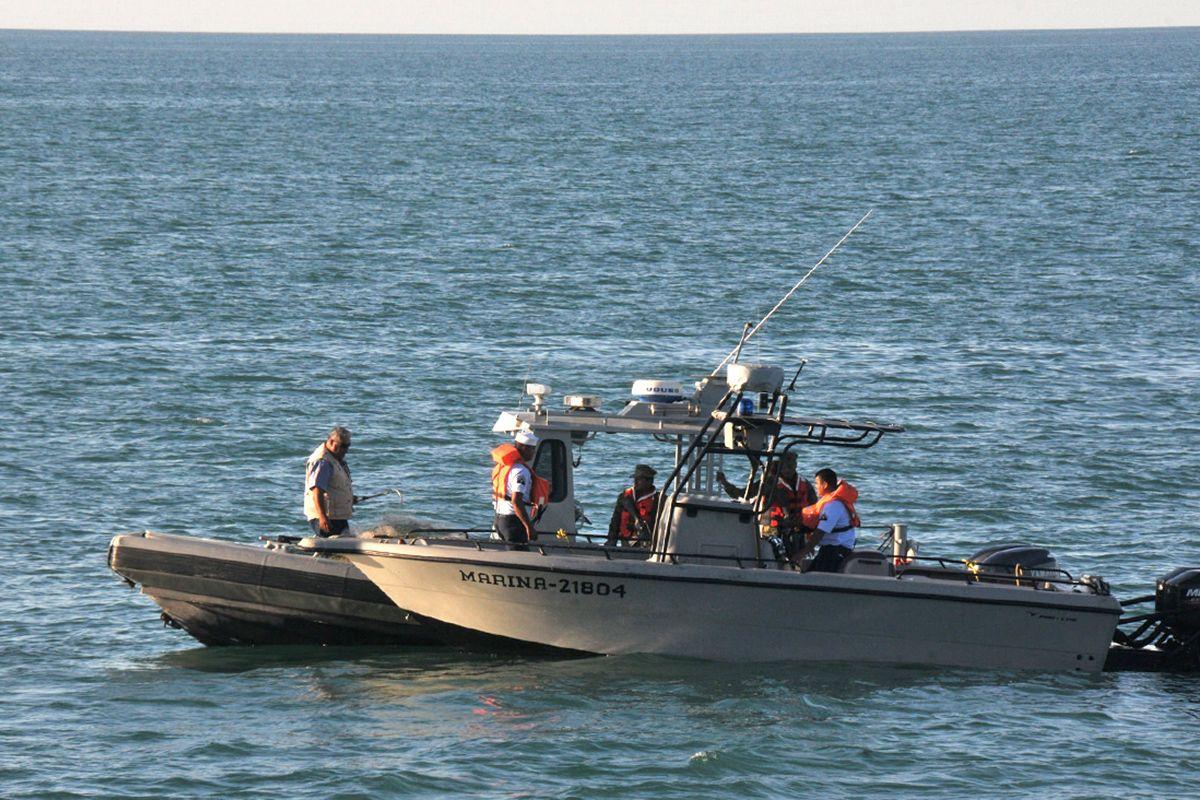One year after the end of the current federal administration, the government's intention that the fight against poaching be carried out by a military institution has not faded. The Secretariat of the Navy (Semar) would carry out this task if appropriate amendments are made to the law, a senior official of this agency said during a fishing forum.
“We don't want to absorb the powers of Conapesca, it's a lot of work, it's really a specialized job, but finally, if so determined by the Executive Branch and the Legislative Branch, we will be working as a fishing authority as well,” said Captain Carlos Alonso Ruiz, director of Fisheries Inspection and Surveillance of the Port Authorities and Maritime Affairs Unit, during his participation in the fourth edition of the Latin American Summit on Fisheries and Aquaculture Sustainability.
Until now, a bill that seeks to transfer fisheries inspection and surveillance powers from the National Fisheries and Aquaculture Commission (Conapesca) to Semar has not yet advanced in Congress.
On March 19, 2020, members of the Morena caucus in the Chamber of Deputies presented an initiative that empowers Semar to propose, coordinate and execute the general policy of inspection and surveillance in fisheries matters.
Asked about how to stop organized crime at sea, Alonso said that they seek to punish through coordinated work with other agencies, but acknowledged that Semar has legal limitations to punish fishing crimes.
“We are not a fishing authority, that is one of the issues we have, reforms are being made to laws so that the Navy has not only functions, but also powers and powers. Why, because finally detecting crimes, but not having the capacity to punish them, is of no use to us. We can detect, arrest 200 people today for a crime, but if we are not the ones who can qualify this action, that contravention of the laws and we have to rely on a third authority, then?” said the captain during a discussion table about illegal fishing in Latin America.

Captain Carlos Alonso Ruiz said that it is not legal fishermen who commit the most common offenses, from fishing with enchanted gears or in unauthorized areas to not having a fishing permit. But rather the crime that has been revealed through frontal combat.
“I insist on the fishing part, it has taken over the sectors, it is the one who receives the product, it is the one who markets it, it is the one who takes the profit in every way you can imagine,” said Alonso.
In Mexico, illegal, unreported and unregulated (IUU) fishing accounts for 40% of what is produced, a supply driven by demand, he said.
The captain stressed that there is a unit within the Navy dedicated to developing vessel positioning systems. In addition, a video surveillance system capable of seeing boats 25 kilometers away. Two resources with which they seek to innovate in the fight against this crime.
Transfer of legal powers
Regarding the transfer of legal powers, the captain explained that since 2015 the Secretariat of the Navy has recovered powers that had been transferred to other secretariats in the 70s.
“So much so that in 2017 the Secretariat of the Navy received the Secretariat of Ports. The Coast Guard commissions that had the Secretariat of Communications and Transportation were created again; now we also have maritime works, the Merchant Marine and the administration of the national port system,” he said.
Civil organizations have viewed with suspicion the transfer of civil powers to military jurisdiction promoted by President Andrés Manuel López Obrador.
Recently, Mexicans United against Crime (MUCD) warned about the risks of giving Semar decisions, among several points, regarding the natural resources of the sea, following an initiative by Morena to make this armed institution the one that formulates and updates the National Maritime Policy.
This policy is a set of strategies, objectives and programs that would cover other key aspects such as: Maritime Security, the National Port System, Maritime and Port Protection, Maritime Culture, Naval Industry, Commerce, Merchant Marine; Marine Environment and Nautical Tourism.
“The National Maritime Policy must be implemented by multiple Secretariats of the Federal Public Administration in the scope of their activities and not by Semar,” MUCD warned in an analysis of the bill presented on April 11, 2023 that amends article 30 of the organic law of the Federal Public Administration.



Comentarios (0)